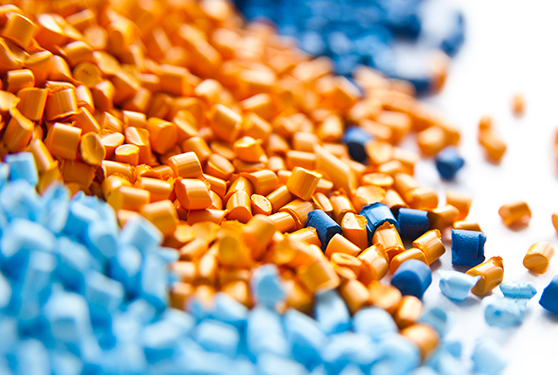
Sustainable Polymers Material Analysis - Advancing Polymers For a Better Future, Today
Products made from polymers are all around us – from safe and hygienic food and personal care packaging to clothing made of synthetic fibers that protect us from harmful UV rays, polymers are a critical part of our daily lives. The versatility of plastics makes them a lightweight, cost-effective option for replacing traditional materials. Success of plastics is partly driven by their durability; yet, it has also led to an accumulation of plastic waste in the environment due to improper end-of-life waste handling. High environmental cost of plastics waste is placing significant pressure on scientists and engineers in the polymers industry to innovate and develop more sustainable materials that account for end-of-life waste management while still maintaining product performance. TA Instruments’ robust polymer analysis solutions are designed to support your laboratory’s drive for innovation, so you can focus on building sustainable solutions for a better future, today. Ready to start your polymer material testing journey? We’ve created these resources to help guide you.How do the intrinsic properties of your polymer materials impact processability?
Avoid time-consuming, expensive setbacks in your product development by proactively characterizing and troubleshooting processing issues that could ultimately affect your end-product performance. This eBook showcases the various tools accessible to R&D and QA/QC environments to stay on top of material processing issues, including managing variability from the use of recycled plastics.
In this new eBook you’ll learn about advanced polymer material testing techniques and solutions to:
- Learn how to identify and solve both processing and product performance problems early on.
- See how to quickly detect differences that can impact performance.
- Discover rapid tests that verify the content and amounts of materials in polymer blends.
- Explore ash testing and how it can be used to measure precise levels of inorganic content in materials, including plastics.
- Find out how to quickly optimize processing conditions of recycled PET
The polymer value chain and solutions for expert polymer material analysis
View this in-depth infographic to learn about the polymer value chain and solutions for expert polymer material analysis. Gain an understanding about polymer processing and how you can answer key questions with analytical testing in these critical areas:
Heat to Melt (Soften the Resin)
What is the processing temperature for this resin? How does this resin decompose?
Deform Into the Final Shape
Is the resin's viscosity suitable for processing? Is this resin suitable for blow molding?
Cool the Molded Product and Release
How do process conditions affect the product’s crystallinity? How does the product perform?
Polymer Characterization From R&D to QA/QC
Learn how you can measure process-relevant fundamental polymer properties such as melting point, crystallinity, and viscoelasticity with thermal analysis, rheology and mechanical testing. At every stage of product development and manufacturing, accurate measurements enable you to optimize processing and improve product performance under end-use conditions.
View this infographic to identify techniques for accurate measurements that enable you to optimize processing and improve product performance under end-use conditions for every stage of product development and manufacturing including:
- Polymer Manufacturers
- Compounders/Masterbatchers
- Converters
- End Market
- End-of-Life Recycling
Use nature’s chemistry sustainably to enhance material performance
Read this case study to learn how Rowan University uses Waters and TA Instruments technology to advance materials research with the goal to utilize nature’s chemistry sustainably to enhance material performance.
Investigations on the use of renewable feedstocks to replace fossil-based raw materials are attracting growing interest in contemporary polymer science from academic, government, and industrial organizations. Bio-based plastics are being developed to limit the use of petrochemical-derived plastics, and the development of sustainable, (bio)degradable, and/or recyclable polymers is a crucial answer to the undesirable environmental, economic, and social costs that are connected to the use of fossil-derived chemicals.
Located in Glassboro, New Jersey, the Henry M. Rowan College of Engineering at Rowan University has launched its Sustainable Materials Research Laboratory (SMRL). The laboratory aims to advance fundamental and applied science and engineering technology related to materials research. SMRL uses advanced materials analysis technology from Waters to accelerate knowledge about potential bio polymers and polymeric composites, as well as to find applications in product design.
For more information
Please enter your email to learn more.



